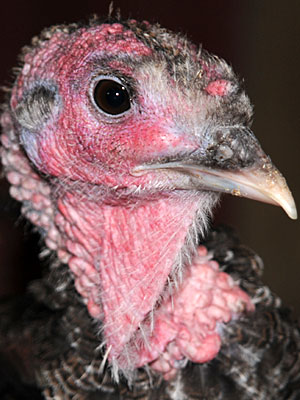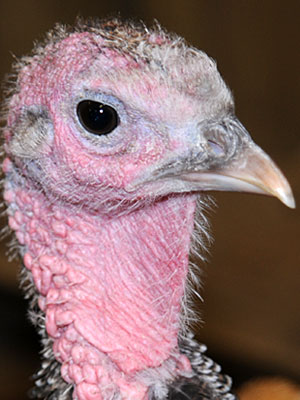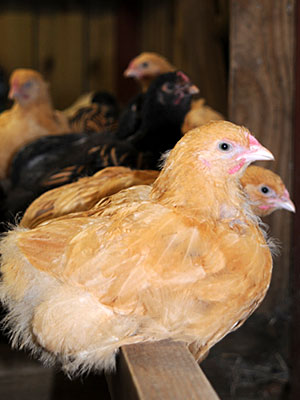Welcome to Relaxed Farming
- Alpacas
- Chickens
- Dairy Goats
- Ducks
- Geese
- Pigs
- Pygmy Goats
- Quail
- Rabbits
- Sheep
- Turkeys
- Polytunnel
- Photo Stories
- Video Stories
- Food
- Smallholding Map
- 2013
- 2014


- August
- September
- October
- November
- December
- January
- February
- March
- April
- May
- June
- July
- August


- 1
- 2
- 3
- 4
- 5
- 6
- 7
- 8
- 9
- 10
- 11
- 12
- 13
- 14
- 15
- 16
- 17
- 18
- 19
- 20
- 21
- 22
- 23
- 24
- 25
- 26
- 27
- 28
- 29
- 30
- 31
Monday, 21st July 2014
The first two photos are of two of our turkey poults, now aged three months. The one on the left has a swollen eye and a blocked nostril; the one on the right doesn't. The poorly one is (probably) suffering from a disease called Mycoplasma which is basically like a cold in that the bird has a runny nose, swollen eyes and may sneeze a lot. However, UNLIKE a cold, if it is untreated the bird can become very poorly and die. We have antibiotics in our medicine box that can treat Mycoplasma and make the bird better BUT the bird might not be cured and may in fact still carry the disease. This means the bird could infect others and may suffer from the disease again at a later date.
We have seen Mycoplasma before in our turkeys and in the winter we sometimes have a chicken or two that get it as well. It is infectious: it is similar to a cold in that if a bird sneezes, another bird may catch it, so birds that have Mycoplasma should be kept on their own until they are better. If young birds are exposed to the disease they can develop a bit of an 'immunity' to it which means they are far less likely to catch the disease than other birds with no immunity.
The antibiotics always help an infected bird and usually within a few days it can be back to normal. However, it is not recommended that you breed from a bird that has had Mycoplasma as the disease can be passed on through the eggs! Our turkeys are being raised for meat so there is not a problem there as long as you don't inject the bird just before you dispatch it. We will check the poult again in the morning; it may need more antibiotics tomorrow or the day after.
But to end with good news: our Orpington chicks, now almost eight weeks old, have started to perch at night. Perching is a natural behaviour that helps keep the birds safe from predators. Some chicks need encouragement to perch and Orpingtons in particular have a reputation for being a bit slow to start this behaviour: not so this group. All twelve were happily perching this evening and looking very comfortable. Clever things!


